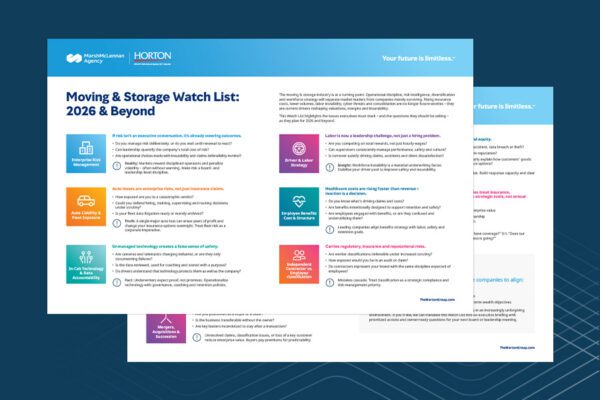On May 30, 2018, New Jersey Gov. Phil Murphy signed the New Jersey Health Insurance Market Preservation Act into law as a measure to stabilize and reduce health insurance premiums in the individual market. This new law imposes a state individual mandate, requiring individuals in New Jersey to maintain acceptable health coverage or pay a penalty, effective in 2019.New Jersey is only the second state to enact its own health insurance individual mandate. Individuals in New Jersey should ensure that they are in compliance with the state individual mandate beginning in 2019.
Overview
Effective beginning in 2019, the New Jersey Health Insurance Market Preservation Act imposes a state individual mandate that largely mirrors the federal individual mandate requirement under the Affordable Care Act (ACA). The ACA’s individual mandate penalty has been effectively eliminated beginning in 2019.
New Jersey’s individual mandate requires most individuals in the state (and their family members) to be covered under minimum essential coverage for each month of the year, beginning in 2019. Individuals that don’t obtain acceptable health insurance coverage will be penalized. Notably, the new law provides that the state individual mandate penalty will not be enforced for any tax year in which the ACA’s federal premium tax credits become unavailable.
STATE RESOURCES
- New Jersey Department of Human Services – https://www.state.nj.us/humanservices/
- The New Jersey Health Insurance Market Preservation Act – http://www.njleg.state.nj.us/2018/Bills/A3500/3380_R1.PDF
Minimum Essential Coverage
For purposes of the New Jersey individual mandate, minimum essential coverage (MEC) has the same definition as under the ACA. MEC includes coverage under:
- A government-sponsored program, such as coverage under the Medicare or Medicaid programs, the Children’s Health Insurance Program (CHIP), TRICARE and certain types of veterans’ health coverage;
- An eligible employer-sponsored plan (including a self-funded plan, COBRA and retiree coverage), defined as any plan offered by an employer to an employee which is a governmental plan or a plan or coverage offered in the small or large group market within a state;
- A health plan purchased in the individual market; or
- A grandfathered health plan.
Health coverage provided under a multiple employer welfare arrangement (MEWA) does not qualify as MEC unless it complies with specific New Jersey state law requirements for these types of plans.
The Penalty Amount
New Jersey’s individual mandate penalty is calculated in the same manner as the ACA’s individual mandate. The penalty is the greater of two amounts—the flat dollar amount ($695) or the percentage of income amount (2.5 percent of income). For purposes of calculating the penalty, income is the taxpayer’s household income minus any exemption (or exemptions, for a married couple) and standard deductions.
Families will pay half the penalty amount for children, up to a family cap of three times the annual flat dollar amount. Also, the penalty is capped at the New Jersey state average of the annual bronze plan premium.
Affected Individuals
The requirement to maintain MEC applies to individuals of all ages (including children), unless that individual falls within a specific exception or is exempt. An individual is treated as having coverage for a month if he or she has coverage for any one day of that month.
The following categories of individuals are exempt from the New Jersey individual mandate penalty:
|
|
An individual who is eligible for an exemption for any one day of a month is treated as exempt for the entire month.
Reporting Requirement
To help administer the individual mandate penalty, the New Jersey Health Insurance Market Preservation Act imposes a reporting requirement on every entity that provides MEC to an individual during a calendar year, similar to the ACA’s reporting requirement under Internal Revenue Code Section 6055. This reporting requirement applies to:
- Employers or other sponsors of employment-based health plans, for employment-based MEC;
- The New Jersey Department of Human Services, for the NJ FamilyCare Program; and
- Carriers licensed or otherwise authorized to offer health coverage, for coverage they provide that is not described above.
Under this reporting requirement, entities that provide MEC are required to provide the following information to covered individuals and the New Jersey state treasurer:
- The name, address and Social Security number (SSN) or taxpayer identification number (TIN) of the primary insured, and the name and SSN or TIN of each other individual covered under the policy;
- The dates during which that individual was covered under MEC during the calendar year; and
- Any other information the state treasurer may require.
To satisfy this reporting requirement, reporting entities are required to file the federal Forms 1094-C and 1095-C, or 1094-B and 1095-B, as applicable, through New Jersey’s system for filing of W-2 forms. For 2019 coverage information, the deadline for filing these forms electronically was extended from March 31, 2020, to May 15, 2020, due to the coronavirus outbreak. More information on this reporting requirement is available on the NJ Department of the Treasury website.
Entities that provide MEC are also required to provide information to covered individuals. The deadline for furnishing Forms 1095-B or 1095-C to individuals, as applicable, remains March 2, 2020. No deadline extension is expected.
Enforcement
In November of each year, the New Jersey state treasurer will send a notification to each taxpayer who files a gross income tax return indicating whether the taxpayer or one of the taxpayer’s dependents is not enrolled in MEC as required. That notification will contain information on the services available to obtain coverage, including through the state’s federally-facilitated Exchange.
The New Jersey state individual mandate penalty will generally be assessed and collected in the same manner as New Jersey state taxes.
This guide is not intended to be exhaustive nor should any discussion or opinions be construed as legal advice. It is provided for general informational purposes only. Readers should contact legal counsel for legal advice.
© 2019 Zywave, Inc. All rights reserved. BR 1/21
Material posted on this website is for informational purposes only and does not constitute a legal opinion or medical advice. Contact your legal representative or medical professional for information specific to your legal or medical needs.


